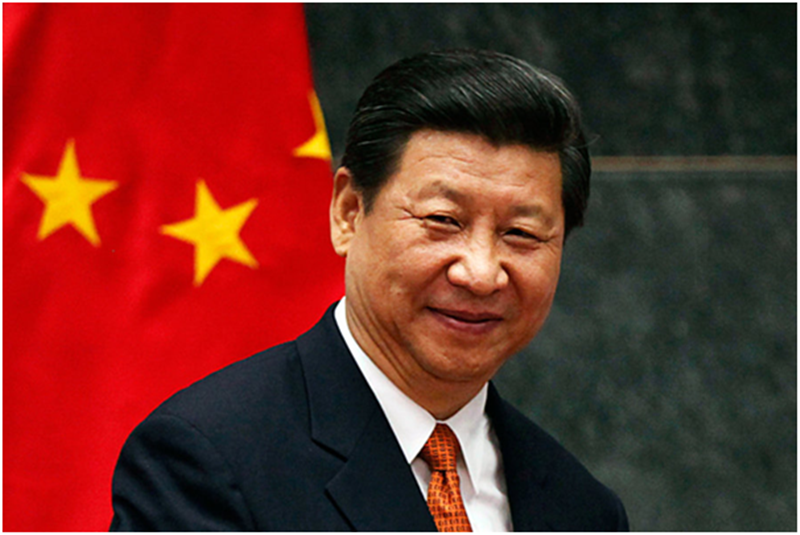While Great Power aspirations are a function of perceived national interests and cumulative increase in national power determinants, they are executed on the chessboard of foreign policy. With ‘national rejuvenation’ as the guiding theme, China unequivocally declared its global ambitions at the 19th Party Congress. In order to transform the country into “a global leader of composite national strength and international influence” by 2050, China has begun conferring an increasing thrust upon its foreign policy dynamics. This has been manifested through the establishment of new institutional frameworks,enhanced budgetary allocations, and the creation of a dedicated leadership pantheon. The underlining feature of this emerging narrative follow the leitmotif of present political culture in China- tightening control of the Party with Xi Jinping at the helm of affairs.
At the National People’s Congress (NPC) held in March 2018, the Central Leading Small Group on Foreign Affairs(FALSG) was upgraded to the Central Foreign Affairs Commission. The Commission is headed by Xi Jinping himself and has been mandated to lead China’s diplomatic efforts. This clearly marks the enhanced centralization of foreign policy as the FALSG operated under the supervision of the Office of the State Councilor.
During the first meeting of the Commission held in May, Xi called for enhancing the centralized and unified leadership of the Party over foreign affairs. Significantly, the Central Leading Group for Safeguarding Maritime Rights and Interestshas been abolished and its work placedunder the newly established Commission. As Xi Jinping is also the head of the Central Military Commission (CMC), these developments allow the Party ultimate sway over China’s South China Sea and Indian Ocean strategy and its policies on territorial disputes. The emerging dynamicsappear to effectively undercut military’s authority with regard to these contentious issues.
The Commission consists ofPremier Li Ke Keqiang in the position of the deputy head, Politburo member Yang Jiechi as the director of the general office and Vice President Wang Qishan as a member. It is important to note that Foreign Minister and State Councilor, Wang Yi has not been reported either as a member of the Commission or an attendee to the first meeting. As Wang is regarded a foreign policy ‘hawk’ within the strategic echelons, his absence from the Commission needs to be studied with much scrutiny. For India, Wang’s absence from the Commission should be of particular concern as he is China’s Special Representative on border talks between the two countries. Significantly, there is no representation from the military on the Commission by far.
The list of attendees to the first meeting included Politburo Standing Committee (PSC) members Wang Huning and Han Zheng. These two men are important as Wang Huning is regarded the theoretical architect of ‘China Dream’ concept which, among other things, has become the template for China’s soft power diplomacy.In fact, he is the first party theoretician to be elevated to the PSC since Cultural Revolution. Han Zheng is the top official responsible for Hong Kong which has emerged as a domestic and diplomatic test case for China since ‘Occupy Central’. The presence of these officials along with YangJiechi–a career diplomat–on theCommissionrepresents a leadership line with domain expertise within China’s foreign policy landscape.
Another key development that signaled the emerging centrality of foreign policy within Chinese politics was the ‘Central Conference on Work Relating to Foreign Affairs’ which was convened in June this year. This was the second such meeting summoned by Xi Jinping following one in 2014. In contrast, Xi’s predecessors Hu Jintao and Jiang Zeming had only held one such meeting during their respective tenures.
At the meeting, ‘Xi Jinping’s Thought on Diplomacy’ was adopted as the guiding principle on foreign policy. Though largely a reiteration of China’s foreign policy outlook and goals under Xi’s presidency, the guiding thought emphasizes two fundamental ideas- absolute control of the Party over foreign affairs and advancement of major country diplomacy. Among other things, ‘majorcountry diplomacy’ highlights the role of head-of-state diplomacythereby furthering the President’s role in foreign policy planning and execution.
In addition to tightening central control, China is employing huge monetary resources to pursue its foreign policy goals. At the NPC, China announced a 15 percent increase in its foreign affairs expenditure from the last such budget presented in 2012. This figure assumes further strategic salience when compared with the increase in defense budget which stood at 8.1 percent.
The economic dynamics of China’s foreign policy approach has been further streamlined with the creation of China International Development Cooperation Agency (CIDCA). The Agency consolidates the roles that till now remained divided between the commerce and foreign affairs ministries. This will provide a concerted push to the Belt and Road Initiative and other international investments representing China’s strategic objectives.As foreign aid is a key instrument of diplomacy, the Agency can be expected to undertake propaganda initiatives to quell the widespread criticism of China’s foreign aid programmes.
While increasing emphasis upon foreign policy dovetails with China’s ambition to become the leader of the international system, the stress upon Party’s absolute controlsignals internal challenges to Xi Jinping’s authority. Of late, China is witnessing growing domestic criticism of Xi’s socio-economic policies and speculations remain rife over a civil-military disconnect in the country. Such developments hold the potential to compromise Xi’s policy agenda.This dichotomy needs to be fully grasped by the strategic community.
(Ms. Shikha Aggarwal is a Senior Research Fellow at India Foundation. She holds over five years of research experience in the field of International Relations and Area Studies. Previously, she has been associated with premier Indian think tanks such as the Centre for Air Power Studies, National Maritime Foundation and Vivekananda International Foundation.)




